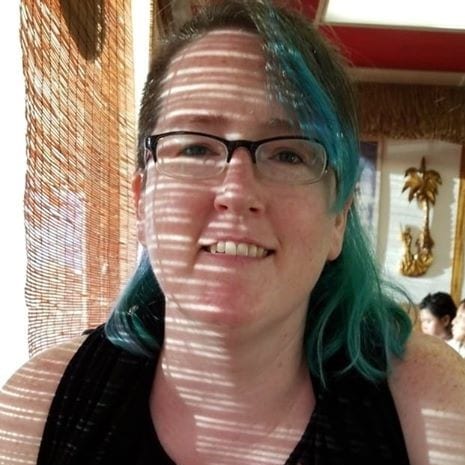A friend of mine once wrote, “Labels work best when self-applied.” It’s very rare that I will remember a person’s words exactly, but those exact words stuck with me, because it is so, so very true.
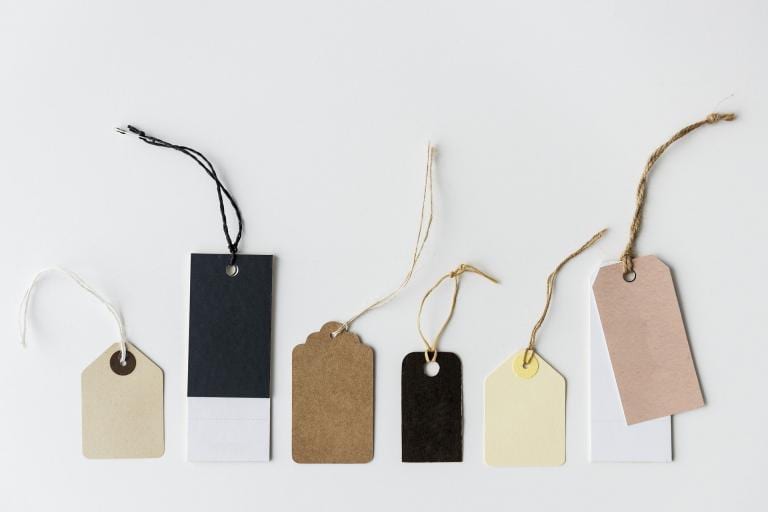
I’m old enough to be a Xennial, and for a time in my youth I very much enjoyed the Gen-X idea that labels were restrictive monstrosities that put us in boxes and prevented us from realizing our true selves. As I grew older, I realized that perspective wasn’t practical. The problem is, labels are language. All of language is just a bunch of labels that all have meaning, especially when strung together. Every. Single. Word. All of it is labels. Without labels, we have no communication, and without communication we have no society.
Labels are bad when they are inflicted inaccurately upon us by society, but they are liberating when we choose them for ourselves. When the available labels are inadequate, it is time to create more, so we can have that common ground of understood labels with which to describe ourselves and the world around us.
My Transgender Personal Truth
Gen-X is definitely right on one point. You can absolutely know yourself without a label to describe it. I have always known what my gender was, since I was a child and first encountered the concept of intersex. I was capable of describing my gender, but I didn’t have a label for it. Even now, with all the expanding definitions for various genders, there is no established term for my gender. Sure, there are words that come close, but none of them really work, so I have mostly stuck to using the umbrella term of non-binary.
I don’t need a word for it for my own sake. I never struggled with understanding my gender. When I was a child reading science fiction and fantasy, I stumbled upon the concept of intersex. At first, I didn’t know it occurred in the human species, but my heart sang nonetheless.
It sounded like perfection, to have sex traits which fell outside the traditional definitions of male and female gender, to have a body which was neither female nor male. I knew, right then, that if it was possible to physically transform my body in that way, I would not hesitate to do it. When I discovered there were humans who were born intersex, my heart sang for joy at their good fortune. When I discovered many of them were mutilated by their parents and doctors, subjected to unnecessary surgeries for sake of binary gender conformity, my heart filled with sorrow for them.
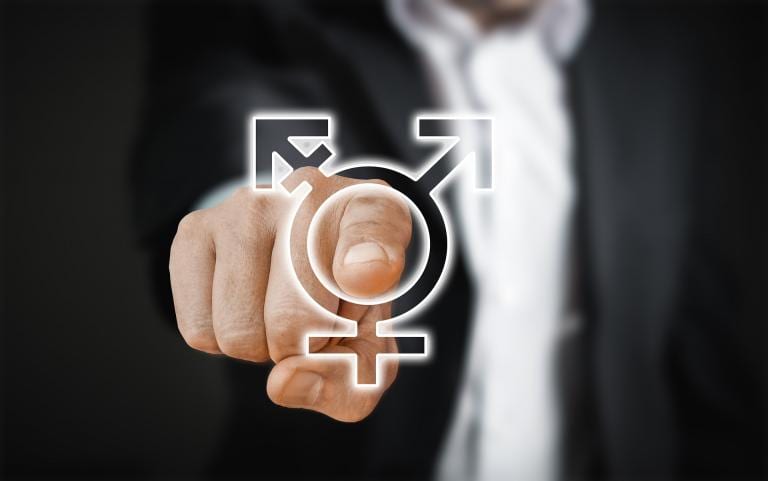
I am trans intersex. I have never seen another person use those two words together to describe gender, but it is the only label that accurately describes me. Bigender, multigender, pangender, and similar labels don’t feel right. I am most definitely not genderfluid. Non-binary and genderqueer work, but both are incredibly broad and include a whole host of genders that are not accurate for me. Trans intersex works, and describes me perfectly. My body is entirely female. My heart, mind, and soul are intersex. An intersex body, no matter the specific sex traits, would be perfection for me, but that is not my fate in this life, and I’m OK with that.
I am part of the lucky portion of the transgender community who is not tortured by dysphoria. When I think about it, I can feel a throbbing sensation where I know a penis should be, but the lack just makes me a little sad. My dysphoria is incredibly mild. I love my body overall, and I can’t add anything without losing other things I value just as much, so I am completely at peace with my physical body. I don’t feel the need for any physical transition, or to take hormones. I am still transgender, because my true gender doesn’t match my biological sex.
Just a couple days ago I encountered a couple of new (to me) terms. They are specifically used in the debate about whether or not dysphoria and medical transition are necessary to qualify as transgender: truscum and tucute. I don’t live somewhere I can easily interact in person with an LGBTQiA+ community, so the existence of these terms passed me by until a short time ago. I saw a comic addressing transphobia specifically excluding people like myself (who lack dysphoria) from the trans community. It used those terms, so I looked them up.
tucute (Urban Dictionary)
Someone who believes that gender dysphoria is not necessary to be transgender. May or may not be transgender themselves.
truscum (Urban Dictionary)
A transgender individual who believes that to be considered transgender you must have experienced emotions such as:
Depression-like states caused by sex
Seeking medical/surgery treatment to re-assign genitals and hormones
Relief from identifying as the chosen gender
Uncomfortability around genitals and other gendered organs
Obviously, I am a tucute. My personal Truth is, and always has been, that I am trans intersex, even though I am not really dysphoric and most of my life I didn’t have an accurate label to apply to myself.
I never cared whether or not the rest of the world labeled me correctly, because I knew my personal Truth, and for me, that was enough. It wasn’t worth it to me to try and explain myself, excuse myself, validate myself, to random people. I’ve always been open with family and friends when the subject comes up, but it is tiring to constantly explain your existence.
It’s even more exhausting when your Truth is so outside the accepted norm there are no labels to describe it, and the effort is likely to meet with confusion and bafflement. That wasn’t a fight I was willing to take on alone. That wasn’t the hill I was willing to die on. So, I let it go.

The social landscape around transgendered people has turned on its head in recent years. When I was a child living in heteronormative suburbia, the existence of transgender people was like an odd footnote. Sure, they existed, but it was weird, and wasn’t important, and it was unlikely you’d ever actually meet one. What a difference a couple decades can make!
Transgender people are being actively vilified on a constant basis (bathroom panic for starters), but at the same time are standing up and demanding to be recognized as legitimate human beings fully deserving of all the same rights as anyone else. There is pushback, but there is also growing awareness and increased allyship.
That’s amazing, and it is inspiring! There are new labels being created constantly, and people are hungry for understanding, both inside and outside the LGBTQiA+ community. A lot of people. And that matters, because lack of understanding fuels bigotry and hate.
So, here I am, putting my label out there. I am adding it to the mix, to describe a gender that, as far as I can tell, had previously not been labeled. I am speaking up in the hopes of fostering understanding, and maybe giving a label to someone else out there who resonates with it.
Labels are powerful when self-applied. Like chanting a spell, they can make solid what was once baffling. Finding a label that is True, with a capital “T”, can be every bit as empowering as finding a True Name. Words are powerful. Labels are powerful. As a result, derogatory labels can hurt, and self-applied labels can heal.

I’ll admit, part of me is a scared about publicly applying that particular label, trans intersex, to myself. Posting it here, publicly, for global consumption, is probably as close as I will ever come to experiencing the fear so many people have at coming out. I’m not scared because I’m uncertain. I am very, very certain.
I am scared because everyone has their own opinions about labels, what is a valid label, and what labels do and do not apply to people other than themselves. We have a social convention of being gatekeepers, applying labels to our fellow humans, and scrutinizing labels that are self-applied in case we disagree. I am scared because there is likely to be backlash, as there is anytime something challenges societal norms
But mostly, I’m scared because I don’t want to offend anyone who was born intersex. They belong to a very marginalized community. They experience tremendous erasure and discrimination. As infants and children, too young to consent, many are subjected to the sorts of reassignment surgeries so often vilified when transgender adults seek them voluntarily.
They live a physical reality that many people deny exists. In many ways they are simultaneously ally, ammunition, and fodder in a war for acceptance of transgender, agender, and other non-binary people, because they are biological scientific proof that gender is more complicated than just man and woman. I will never experience their struggles first-hand, will never physically be one of them, though I yearn to be.
That particular choice in label comes naturally to me because of how I view gender overall. The male/female gender binary dichotomy never made sense to me, and it never will. It is ridiculous, insulting, and just plain rude to evaluate anyone’s gender based on their individual configuration of sex traits. Not only is it no one else’s business, but evaluating intersex people in terms of maleness and femaleness is the same thought trap as equating the validity of a man or woman’s gender based on their sex organs.
A cis woman after a hysterectomy is still a woman. A cis man after castration is still a man. An intersex person is intersex, regardless of what particular sex traits they do or do not have. Intersex is a third biological sex in the human species, which is equally valid, and equally important when compared to male and female sexes. The possible human sexes are male, female, and intersex. From that perspective, it is only natural for there to be corresponding trans genders. If there are trans women and trans men, then there must also be trans intersex.
I know my perspective is far from common in general society, so I fear I won’t be accepted. I may not have TERFs to contend with, actively denying that my personal Truth is real, but I also don’t have an established community of trans intersex and accepting intersex individuals to lean on and provide the social validity labels demand. I hope my timing is good, and my intentions clear, and that my declaration will give strength and comfort to others out there who have a similar gender, who not only hope for public acceptance, but who need it.
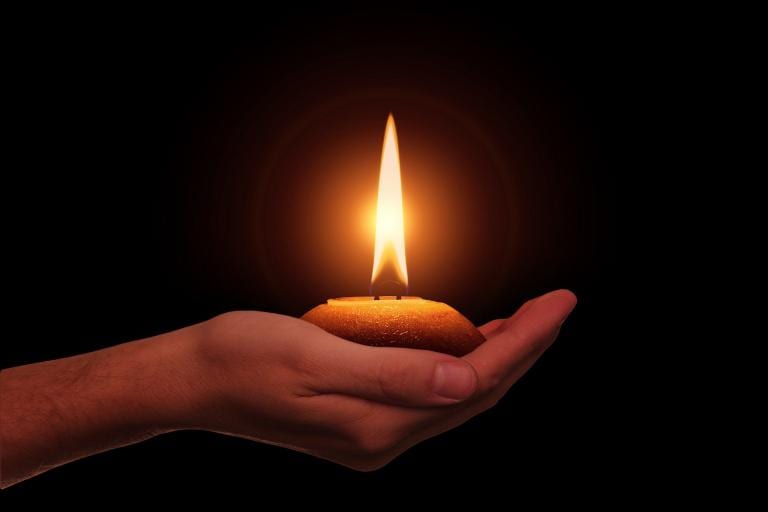
Personal Truths
Gender is behavioral, cultural, or psychological traits associated with a sex. Sex is the biology a person is born with. Each person’s gender is a personal Truth, and their sex is essentially random. When gender and sex agree, a person is cis. When gender and sex do not completely agree, a person falls under the huge umbrella of genderqueer. When gender and sex are at odds with one another, a person is probably transsexual. Cis people have the good fortune to be born with the correct label, so they never have to experience the struggle of living under an incorrect and imposed label. There is nothing sinister or derogatory about that. It’s just happenstance.
Even though all cis people find truth under the same two labels, precisely what those labels mean is debatable. What being female means is different for every woman, what being male means is different for every man, and what being intersex means is different for every intersex person. Gender is always a personal Truth, a personal experience, and unique to each individual, regardless of labels and definitions.
Understanding your gender is just one personal Truth. Sometimes seeking personal Truths is encouraged by society, like seeking that job or vocation that provides ultimate fulfilment (spoiler alert – not everyone has a vocation, and that’s fine). Other times, like with transgender and non-binary people, seeking personal Truth is vilified and actively discouraged by society.
Either way it is hard and sometimes frightening to seek personal Truths, but when it seems like the world is standing against you, it is extra hard. Transgender people are murdered, with disturbing frequency, just for living their personal Truths in societies that also includes people who hate us for existing. We also have a frighteningly high suicide rate when we do not live our true gender, or are actively discouraged from expressing it.
In the gender department, I blend in. Easily and unavoidably. No one is going to look at me and peg me for transgender. At times I have been mistaken for a man (to my great amusement), but that illusion is always short-lived. On the surface, I look like a woman, because that is obviously the body I have, and I do love it despite glaring omissions. People see what they expect, so I am assumed to be a cis woman, and the physical dangers I am likely to encounter are of the female variety, not the transgender variety. I am lucky, but great dangers are very real for a lot of transsexuals. That needs to change.
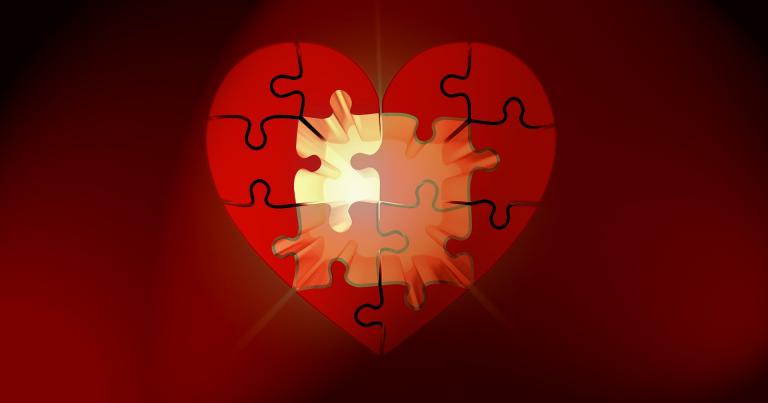
Another of my personal Truths is being a witch, because it is an integral part of who I am and how I interact with the world. Being slapped with the label of Christian as a child was incorrect, in a big way, because for me the two are not compatible. There are Christian witches out there, who choose that label for themselves. It works for them, and that is their personal Truth. I have mine. They have theirs. It’s personal. We are all correct.
I think that for the majority of people, religion, spirituality, and magic are not part of a big personal Truth that defines who they are. Things can be important without being integral. Then, there are those of us for whom finding a spiritual, religious, or magical path is like coming home. It fills a void we didn’t even necessarily know was there, like a missing piece of a puzzle.
I didn’t choose to be transgender. I am transgender. I didn’t choose to be a witch. I am a witch, and I was a witch before I understood and applied the label to myself. I didn’t choose to be right-handed, but I am. Some people are neurodivergent. They don’t choose that. We all have personal Truths which are undeniable, integral parts of what makes us who we are. Sometimes we discover our Truths later in life, but never choose to have them. Our only choice is whether to live those personal Truths, or deny them.
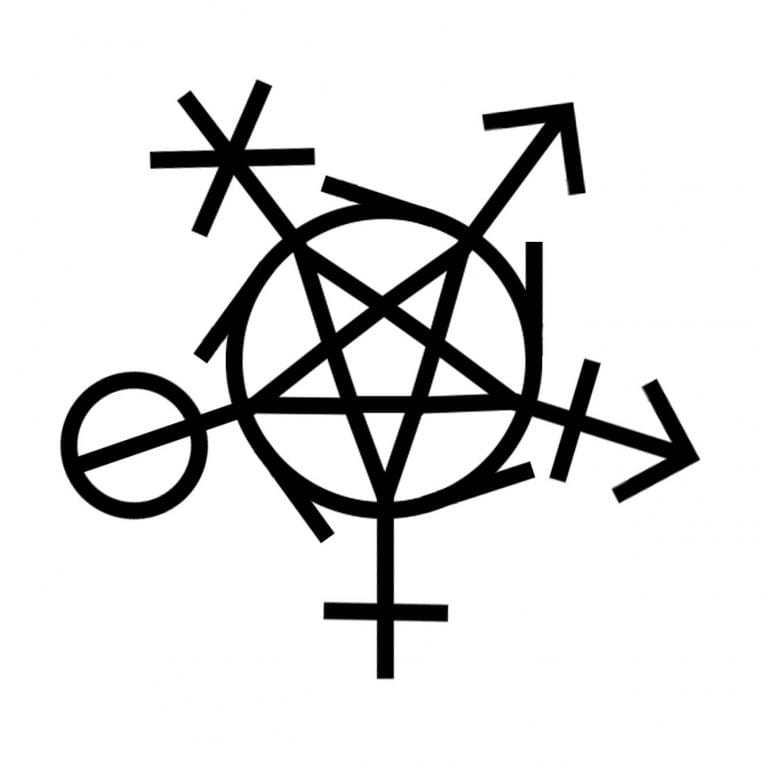
The Transgender Struggle and Paganism and Witchcraft
If you’ve come this far with me, you might be wondering what all that has to do with paganism and witchcraft. This is, after all, a pagan and witchcraft blog.
The answer, to me, is obvious.
It has everything to do with paganism and witchcraft because it has everything to do with living your personal Truths, and accepting the personal Truths of others, whether or not you understand them.
In general, I think that the majority of p-words believe in inclusion and acceptance. Sometimes people take that idea too far and also believe exclusion is impossible in p-word circles. Sadly, that is not the case, and discrimination and exclusion do occur within our communities, sometimes overtly. Denying the fact that discrimination and exclusion happen only facilitates further discrimination and exclusion by preventing meaningful conversation and discouraging changes which would make our communities more inclusive.

Denying the personal Truths of others and refusing to make room for them in community spaces is a form of discrimination. If you believe in inclusion, you must take action to be inclusive, or it won’t happen. If you don’t understand someone else, you must accept that they are valid, and hopefully seek to understand them better.
We all have personal Truths, whether we have no idea yet what they are, we are figuring it out, or we fully understand and embrace them. All of us have more than one. Give those around you the same courtesy you would expect of them: acceptance that their personal Truths are just as valid as yours. You have nothing to lose, and everything to gain, by embracing the richness of diversity. After all, it exists with or without your approval.
A huge portion of p-words and magic users are path seekers, taking advice from those who have gone before, but at heart forging our own, unique paths. Even if you are following an established, formal tradition, it is very likely you are still seeking your own personal Truths from within that structure. Seeking personal Truths is a very human thing to do, even when doesn’t manifest as a driving need to find an anchor that gives meaning to our existences.
That is one of the appeals of paganism – the foundational belief that we can find our own Truths. In that context, it is counterproductive to overtly hide from your own Truths, and disingenuous to deny the Truths of others just because they are not also True for you.
Even if you can’t relate to the struggles of being transgender, you can take inspiration from us. I take inspiration from my transgender siblings who do not blend in, who take that risk to live life to the fullest, embracing their personal Truths despite the dangers. You can too. They are literally risking murder by bigot. Your personal Truths might carry that level of risk, but they might not. Either way, when something is a personal Truth, it is a detail about yourself that is integral to your existence, an undeniable facet of who you are as a person. Living in denial of personal Truth is painful for anyone. I have my best chance at happiness by living my personal Truth, and you have your best chance at happiness by living yours.

As the meme goes, I might not understand Korean, but I know it’s a real language.
You don’t have to understand the personal Truths of others to accept that they are real. You also don’t have to stop speaking your language just because it’s not the language someone else uses. But, if your community includes Korean speakers, it would be nice if you listened to their stories and made the effort to learn some vocabulary and customs in an effort to embrace them as full members of your community.
11/19/2020 ADDENDUM: Our understanding of the meaning and use of words are constantly evolving as we and the societies around us continually change. When I wrote this, I had only just learned the word “truscum”, and, although I could quote the definition, I did not have a good working understanding of the term. Now, in light of this article’s emphasis on self-applied labels, its inclusion here seems a bit… odd. Both “truscum” and its close cousin “transmed” (same sentiment, but coming from someone who may or may not be transgender), are words which are unlikely to be self-applied by anyone, because those words are extremely critical of the behaviors they describe. “Truscum” in particular points out when transgender people are being transphobic of others, which is never a good look.
Much like TERF, those whose behaviors are accurately described by the word “truscum” are likely to take it as a slander or slur, and yet we need that word to express our criticism of that behavior and those who do it. We need that word to describe those who practice exclusionary gatekeeping, and attempt to invalidate the lived experiences and personal Truths of others. We need that word, because without it, those like me, who do not pursue medical and/or hormonal transition, can be left to wonder whether or not the gatekeeper might be right.
That is a horrible prospect, because if those truscum/transmed gatekeepers were correct, then there is no context in which we belong. We are pressured from both sides to conform in ways that are contrary to our personal Truths, either by entirely denying our true genders, or by undergoing procedures and taking medications which are just as invalidating of our personal experiences and Truths. Frankly, that is a horrible and isolating thing to experience.
Don’t be a gatekeeper. Be intersectional.
References:
InterACT: Advocates for Intersex Youth
Transgender Day of Remembrance: Honoring Those Lost to Anti-Transgender Violence
Additional Reading:
- Acorn & Antler: What’s Under Your Robes? by October Leigh
- Traditions in Transition: Men as Mothers by Ashleigh “Foxbad” Smiley
- Between Two Worlds: TERF’s, Transphobia and Transgender Violence by Brianne Raven Wolf
- Between Two Worlds: Transgender Day of Remembrance by Brianne Raven Wolf
- Toxic Christianity, Patriarchy, White Supremacy, Toxic Masculinity And Its Impact On Pagans And Occultists by Scarlet Magdalene
- Cis-centric Heteronormativity Must Die: The Craft, All Of Magic, And Paganism Is Marching Into the 21st Century Whether You Like It Or Not by Scarlet Magdalene
- Beyond The Athame & The Chalice: Rethinking Gender Roles And Polarity by Scarlet Magdalene
- Divinity Beyond the Gender Binary by Sidney Eileen
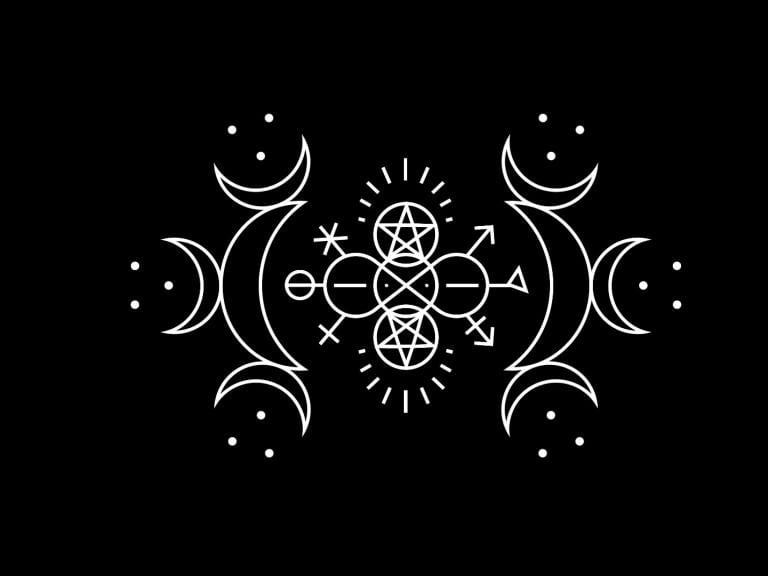
This is a sigil for gender diversity, acceptance, and inclusion in pagan and magical spaces, community, rituals, and workings.
This has been magically charged with intent for:
*learning
*welcoming
*community
*crossroads and bridges
*inclusion and full acceptance
*open to other perspectives
*wards against hate and bigotry
You can read more about the sigil, what it means, suggestions for how to use it, details about its creation and the specific symbology used, and download high resolution image files.


